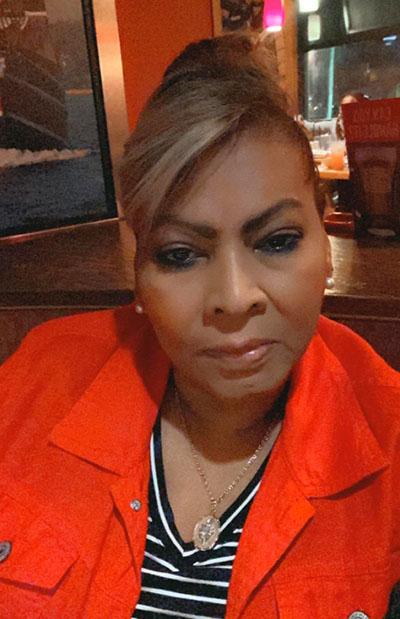Immigrant entrepreneur weathers many storms to continue her design dreams

Daisy Bedoya was already struggling to make ends meet when the coronavirus pandemic forced her to close her business for a few months, leaving her with mounting debt. Graphx Designs and Concepts is a graphic design company that creates posters, LED light displays, window lettering and more in Largo, Florida.
Daisy opened her business in 2004 alongside her son Jonathan Ortiz, who she credits as her main source of inspiration and creativity. Initially, they opened a consignment shop, but after just six months they pivoted the business into a graphic design shop when they discovered more opportunities for growth in that industry. They started small, as most businesses do, and purchased a professional trimmer and other graphic design supplies. Over time, Daisy and her son grew their business to offer more services to their customers nationwide, and began outsourcing larger projects to third-party vendors.
A Latina native of Panama, Daisy is not new to overcoming business obstacles. But with the impending economic recession caused by the COVID-19 global pandemic, Daisy worries about losing the business she’s worked hard to build in the span of 16 years.
Daisy is familiar with economic and natural disasters: Nearly five years ago, her business sustained an economic injury due to Hurricane Matthew, which caused catastrophic damage in Haiti and spread through the southeastern U.S. She explains, “My whole business flooded and I almost closed shop permanently. I applied for a disaster loan with the Small Business Administration, but they denied my request. They didn’t give me a reason but I think I got denied based on my lack of banking history. I’ve never had to request a loan for my business, so I guess I’m paying the price for that.”
Unfortunately, Daisy’s struggle to access financing is widespread among the Latino business community. The most common funding source of Latino-owned businesses is personal funds according to a 2016 State of Latino Entrepreneurship report, which results in a lack of established banking relationships and limited credit history that negatively impacts entrepreneurs when seeking financing assistance.
This issue is now playing out with the Paycheck Protection Program, which aims to assist small businesses across the country with emergency funding in response to COVID-19 closures. Reports have shown little of it has reached small, women and minority-owned business owners.
Daisy, like many other sole proprietors across the nation, was initially unsure if she could qualify for an emergency loan. “The applications for EIDL and PPP loans are confusing and difficult to follow,” she reported. “Add the language barrier into the mix, and what do you have? These loans are designed to help big businesses that can afford accountants—and I can barely afford rent.” After going back and forth with her bank and receiving resources from Small Business Majority, Daisy was finally approved for a small PPP loan and EIDL.
Even though Daisy received emergency loans, she explains she was severely underfunded. “According to my bank’s calculations, my PPP loan was approved for $2,000 based on last year’s revenue. Since my business was already struggling to make ends meet, this small amount isn’t going to be enough to sustain me,” said Daisy. She used the money to pay for her business’ overdue bills, and is saving some of it to invest in a larger printer that would allow her to take on bigger orders to keep her business afloat.
Daisy advises other small business owners in her situation to persevere and continue to work hard for their dreams. “I hope the pandemic will subside soon and I encourage small business owners across the nation to support one another during this difficult time.”
